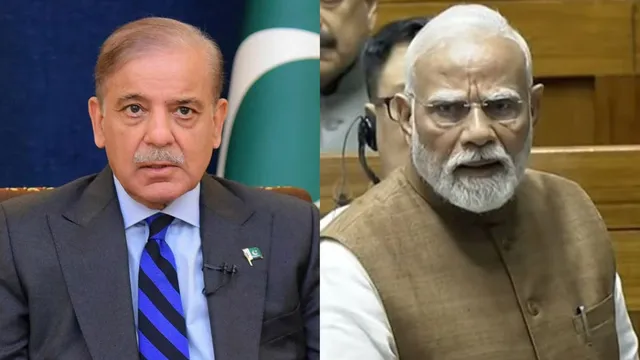- By Shivangi Sharma
- Wed, 30 Jul 2025 11:53 PM (IST)
- Source:JND
Pakistan’s Foreign Office spokesperson, Shafqat Ali Khan, issued a statement rejecting Indian assertions about the operation, calling them “baseless” and an attempt to “justify aggression” for domestic political gain. He accused India of launching strikes without credible evidence and touted Pakistan’s alleged success in neutralising Indian jets, a claim consistently refuted by Indian officials and analysts. Pakistan also stated that it remains committed to peace, regional stability, and a meaningful dialogue for the resolution of all outstanding issues, including the core dispute of Jammu and Kashmir.
India’s leadership, including Home Minister Amit Shah and NSA Ajit Doval, clearly articulated the mission: strike nine terror infrastructure targets and eliminate over 100 terrorists within 23 minutes, with surgical accuracy and zero collateral damage. External Affairs Minister S Jaishankar added that only three UN nations opposed India’s response, emphasising global understanding of India’s right to self-defence.
Pakistan’s Claims Exposed
Pakistan has claimed that India ignored its offer for a neutral investigation into Pahalgam terror attack. India’s refusal to accept Pakistan’s terms reflected confidence in its intelligence, not weakness.
ALSO READ: Australia's First Rocket Launch Turns Into Fireball, Crashes Seconds After Liftoff | VIDEO
Earlier on Tuesday, PM Modi said that India will respond to terrorist attacks on its own terms and will not be deterred by nuclear threats. Hailing Operation Sindoor as a strategic breakthrough, he revealed that Indian forces destroyed terrorist bases in Wahwalpur and Muridke, and disabled several Pakistani airbases. He emphasised the use of indigenous drone technology in the mission, showcasing India's advancement in tech-driven warfare.
Modi also underlined the joint efforts of the Army, Air Force, and Navy, saying the operation had reshaped regional dynamics. “Those who sponsor terror now fear consequences,” he asserted.
Pakistan’s continued tweets about the Indus Waters Treaty and humanitarian arguments ring hollow. PM Modi reaffirmed that “blood and water cannot flow together,” referencing Pakistan’s continued support for cross-border terrorism, particularly in Kashmir. He highlighted the imbalance in the Indus Waters Treaty, under which Pakistan receives nearly 80 per cent of the river system’s water. While India has exclusive rights over the eastern rivers (Ravi, Beas, Sutlej), it is allowed only limited use of the western rivers (Indus, Jhelum, Chenab) despite originating in India.

